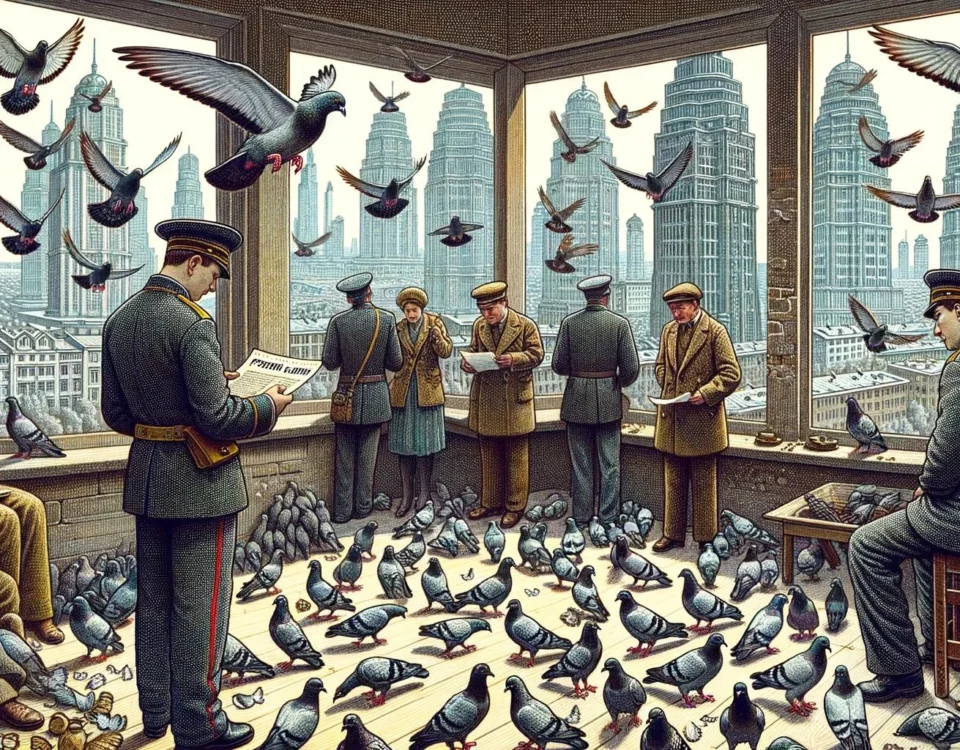Racing pigeons have been a popular sport for many years, with enthusiasts participating in races to determine the fastest and most skilled homing pigeons. However, like any other sport involving animals, racing pigeon activities are subject to laws and regulations to ensure the welfare and fair competition of the birds. In this article, we will explore the key aspects of racing pigeon laws, including the legal requirements for keeping and racing pigeons, the protection of wild pigeons, and the involvement of animal welfare organizations.
Key Takeaways
– Racing pigeon laws aim to regulate the keeping, care, and racing of pigeons to ensure their welfare and fair competition.
– Laws vary from country to country and even within local jurisdictions, so it is important for pigeon fanciers to familiarize themselves with the specific regulations in their area.
– Common legal requirements include adhering to zoning laws, obtaining permits and licenses, and following building codes for pigeon lofts.
– Some countries have protections in place for wild pigeons, while others consider them pests and allow control measures like shooting or nest removal.
– Animal welfare organizations have raised concerns about the treatment of racing pigeons and have advocated for stricter regulations to ensure their well-being.
Legal Requirements for Keeping and Racing Pigeons
When it comes to keeping and racing pigeons, there are several legal requirements that pigeon fanciers must adhere to. These regulations aim to ensure the welfare of the birds and maintain a fair and competitive environment. Some of the common legal requirements include:
1. Zoning Laws: Many jurisdictions have zoning laws that govern the keeping of animals, including pigeons. Pigeon fanciers must comply with these laws to ensure that their lofts are located in appropriate areas.
2. Permits and Licenses: In some areas, obtaining permits or licenses is necessary for keeping and racing pigeons. These permits may require certain conditions to be met, such as the maximum number of pigeons allowed or specific health and safety measures.
3. Building Codes: Pigeon lofts must meet certain building code requirements to ensure the safety and well-being of the birds. This may include provisions for ventilation, insulation, and structural integrity.
4. Licensing Requirements: Some jurisdictions require pigeon fanciers to obtain specific licenses related to the keeping and racing of pigeons. These licenses may involve demonstrating knowledge and competency in pigeon care and racing.
5. Health and Biosecurity Measures: To prevent the spread of diseases, pigeon fanciers may be required to implement certain health and biosecurity measures. This can include regular veterinary check-ups, vaccinations, and proper sanitation practices.
It is essential for pigeon fanciers to familiarize themselves with the specific regulations in their area to ensure compliance with the law and the well-being of their birds.
Protection of Wild Pigeons and Control Measures
While racing pigeons are domesticated birds raised for sport, show, or food, there are also wild pigeons that exist in many regions. The legal status and protection of wild pigeons can vary from country to country.
In some countries, wild pigeons are considered protected species, and specific laws and regulations are in place to safeguard them. These laws prohibit trapping, killing, or harming wild pigeons and may impose penalties for violations. In such cases, it is important for pigeon fanciers to be aware of the distinction between their domesticated racing pigeons and wild pigeons to avoid legal issues.
On the other hand, certain jurisdictions may consider wild pigeons to be pests or invasive species. In these cases, control measures such as shooting pigeons or removing their nests may be allowed. However, it is crucial to ensure that any control measures are carried out in accordance with the relevant laws and regulations.
It is advisable for pigeon fanciers to consult local wildlife authorities or government agencies to understand the specific rules regarding the treatment of wild pigeons in their area.
Involvement of Animal Welfare Organizations
Animal welfare organizations play a crucial role in advocating for the well-being of animals, including racing pigeons. They often raise concerns about the treatment and welfare of racing pigeons and push for stricter regulations to protect them.
These organizations may focus on various aspects of racing pigeon welfare, such as proper housing and care, transportation conditions, and the use of performance-enhancing substances. They may also work towards ensuring that races are conducted fairly and without cruelty.
Pigeon fanciers should be aware of the concerns raised by animal welfare organizations and strive to maintain high standards of care and welfare for their racing pigeons. It is important to stay informed about any changes in regulations or guidelines put forth by these organizations to ensure compliance.
In conclusion, racing pigeon laws aim to regulate the keeping, care, and racing of pigeons to ensure their welfare and fair competition. These laws can vary from country to country and even within local jurisdictions. It is crucial for pigeon fanciers to familiarize themselves with the specific regulations in their area to ensure compliance with the law and the well-being of their birds.








